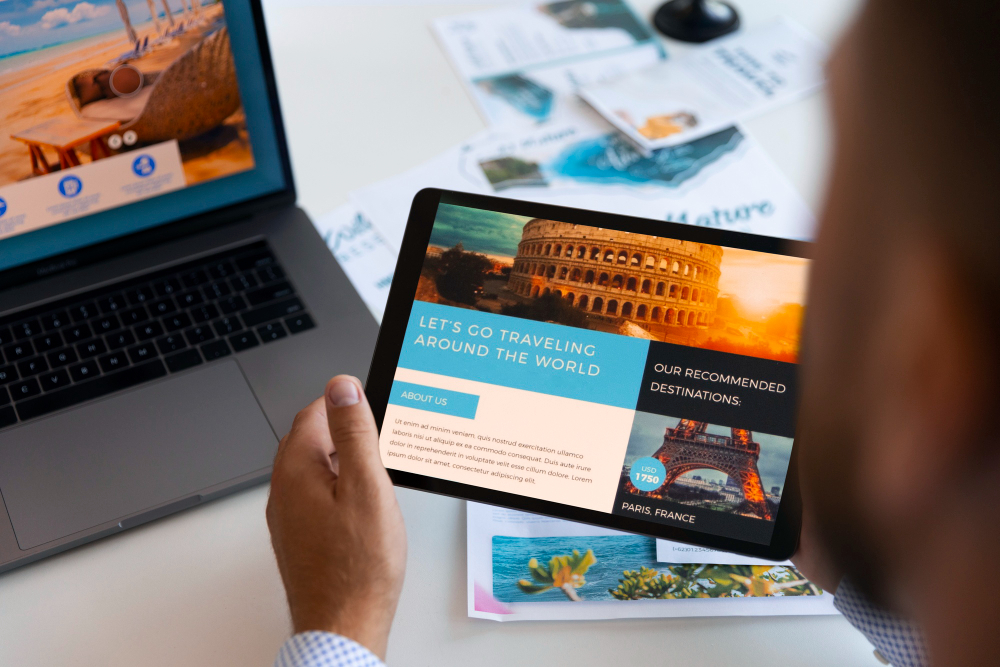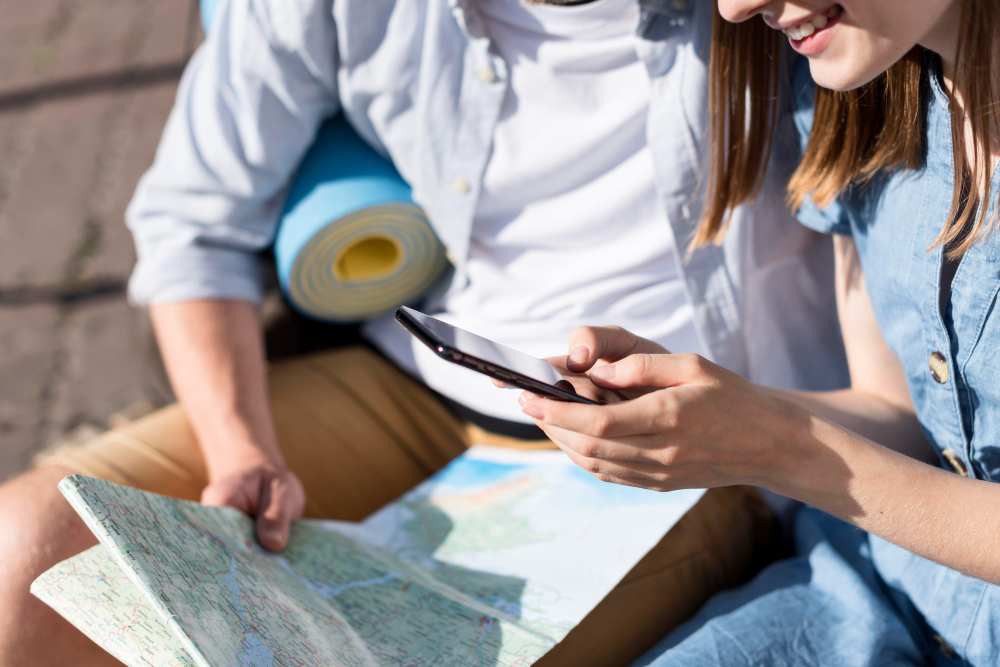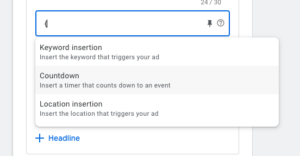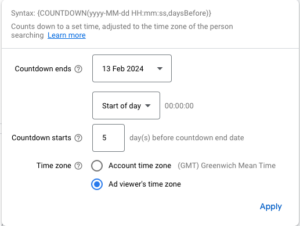Travel PPC remains one of the best ways for travel brands to amplify their brand, with many competitors fighting for customer’s hard-earned holiday budgets. With more customers looking to purchase their getaways online, holiday and airline digital transformation is crucial. Whether you’re a travel agency, tour operator, or hotelier, understanding the intricacies of PPC advertising is crucial. In this blog, we’ll dive into eight tips for a successful travel PPC campaign, complete with industry-specific examples, to help you soar above the competition.
Understanding the traveller’s journey is the compass guiding your travel PPC campaign. Tailor your ads to different stages – from inspiration (dreaming of the next adventure) to research (choosing a destination) and booking. Keep an eye out for special events and holidays which may also affect the way travellers purchase.
For example, create ad groups for specific destinations, offering relevant content at each step. Each group should be served different creative, copy and CTAs depending on the buying stage of the journey, and make sure you have relevant landing pages which correspond to this stage. Crucial to any travel PPC campaign is ensuring budgets are aligned to these periods so that your team takes advantage of all potential opportunities.
Make your ads stand out by using ad extensions. Ad extensions are additional pieces of information that complement your basic ad copy, providing users with more reasons to click. They allow you to differentiate ads and allow you to tailor your message to specific user needs. With more information available in your ad, users are more likely to click through to your site. This improved CTR can positively impact your Quality Score, leading to better ad placements and lower costs per click.
For a travel campaign, consider location extensions to showcase your business address, callout extensions for unique selling points, and structured snippets to highlight specific travel offerings like tours, packages, or accommodation options.
Location Extensions:
Callout Extensions:
Structured Snippets:

Leverage ad scheduling strategically to ensure your travel PPC campaign reaches potential travellers when they are most receptive. Analyse data to understand peak times when your target audience is actively searching for travel-related information or planning their next adventure.
Tailor your ad schedule to align with these patterns, focusing your budget on days and hours that historically yield the highest conversion rates. For instance, if weekend evenings see a surge in travel planning, allocate a larger share of your budget during this timeframe. Conversely, if mid-week afternoons are less active, consider scaling back to maximise efficiency. Ad scheduling optimises your budget and enhances the relevance of your ads, ensuring they appear when users are most likely to engage. By understanding the best timing for your travel PPC campaign, you can create a strategic impact, reaching potential travellers at the precise moments when their wanderlust is most pronounced.

Craft a robust keyword strategy tailored to the travel niche. Long-tail keywords are specific, detailed phrases that cater to a niche audience. Rather than opting for broad terms like “luxury resorts,” delve deeper into the intricacies of traveller preferences. For example, “luxury beach resorts in Italy” or “family-friendly eco-resorts in Bali” are long-tail keywords that precisely target users with specific interests. These phrases, while potentially generating fewer searches, capture an audience that is more likely to convert due to the specificity of their search intent. Long-tail keywords not only enhance the relevance of your ads but also contribute to a higher quality score, positively impacting your campaign’s overall performance.
Niche keywords allow you to establish authority within a specific segment of the travel market. While long-tail keywords are detailed phrases, niche keywords focus on a particular aspect of the travel industry. For instance, if your agency specialises in adventure tours, your niche keywords might include “Patagonia trekking expeditions” or “African safari adventures.” This strategy positions your travel PPC campaign as a specialist, resonating strongly with users seeking expertise in their desired travel experiences.
The beauty of a robust keyword strategy lies in its adaptability. Regularly refine and update your keyword list to align with evolving user trends and industry dynamics. Leverage analytics tools to identify high-performing keywords and eliminate those that yield minimal results. By continuously fine-tuning your keyword strategy, you ensure ongoing relevance and maximise the return on investment (ROI) for your travel PPC campaign.
Geo-targeting is a powerful tool for travel agencies, especially regional ones, to reach the right audience with the right message at the right time. Here are some ways to optimise your campaign with geo-targeting:
Focus on specific locations:
Customise your message:

Did you know that 60% of people make purchases because of FOMO, mostly within 24 hours. Create a sense of urgency with time-sensitive promotion. This will help to enhance engagement and drive conversions. Emphasise enticing limited-time offers that showcase exclusive deals on flights, accommodations, or travel packages. Whether it’s a flash sale with heavily discounted rates or special early booking discounts, make it clear that these promotions are available for a restricted timeframe.
To further intensify the impact of your travel PPC campaigns, integrate countdowns directly into your ad copy. Countdown timers act as visual cues, reinforcing the limited availability of the promotions and prompting potential travellers to act promptly. You can use these in your google ads by selecting a responsive search ad then inserting a countdown timer!


To enhance the user experience and maximise the effectiveness of your Travel PPC campaigns, it is crucial to maintain consistency between your ad content and the dedicated landing pages. When promoting a specific package through your advertisement, the corresponding landing page should be focused on that specific product to get the most from your campaigns.
Furthermore, the landing page should offer easy and intuitive booking options, streamlining the conversion journey for users who are ready to commit. Seamless integration of booking forms, clear calls-to-action, and transparent pricing contribute to a positive user experience, increasing the likelihood of converting clicks into bookings. Visually appealing content on the landing page, such as high-quality images and engaging multimedia elements, complement the initial interest presented in the PPC ad. By aligning your ad messaging with dedicated landing pages, you not only enhance user satisfaction but also build trust.
Constantly monitor the performance of your Travel PPC Campaign. First, decide on your main goal for your PPC campaign, and utilise analytics tools to track key metrics like click-through rates, conversion rates, and return on ad spend. Make data-driven adjustments to optimise your campaign for better results. Imagine you’re a luxury cruise provider running a PPC campaign. Your ad could feature stunning images of your cruise ship, use ad extensions to showcase onboard amenities, target keywords like “luxury cruises,” and promote limited-time offers for specific routes.
Ready to elevate your travel business with a winning PPC strategy? We’ve worked with leading travel brands, including, Contiki, Red Carnation Hotels, Skiweekends and Trafalgar Tours.
Contact Sagittarius Agency today for personalised insights and expert guidance. Let’s embark on a journey to digital success together!
Discover how the world’s top airlines navigate digital effectiveness in our report